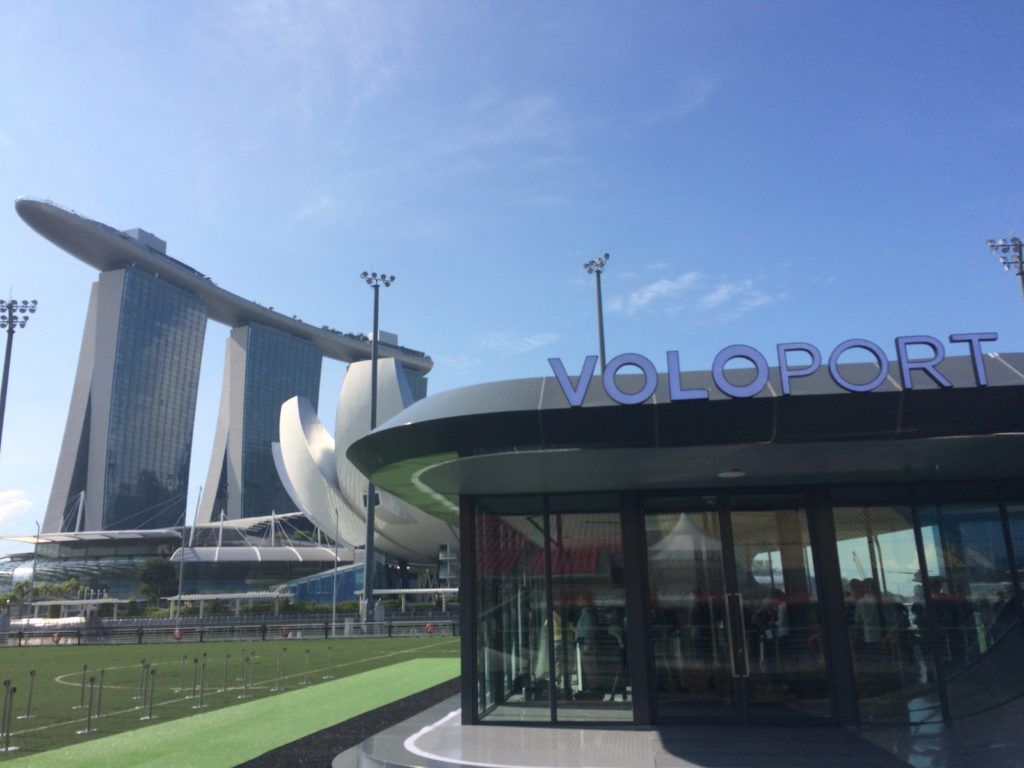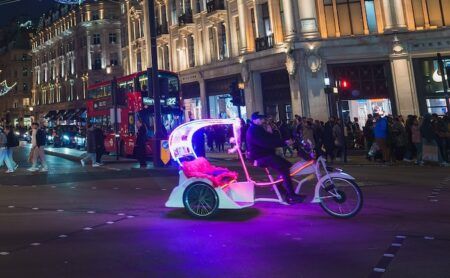Prior to the official opening ceremony of the ITS World Congress in Singapore (October 21) urban air taxi pioneers Volocopter and Skyports unveiled their first prototype VoloPort – the infrastructure that it plans will turn its revolutionary transport solution into a viable public service for cities around the world.
They used the event to call on global city chiefs and regulators to collaborate on the project that they believe will become a completely new form of transportation, offering fast, affordable, clean, point-to-point travel in the air, thereby one day taking pressure off traditional ground-based transportation.
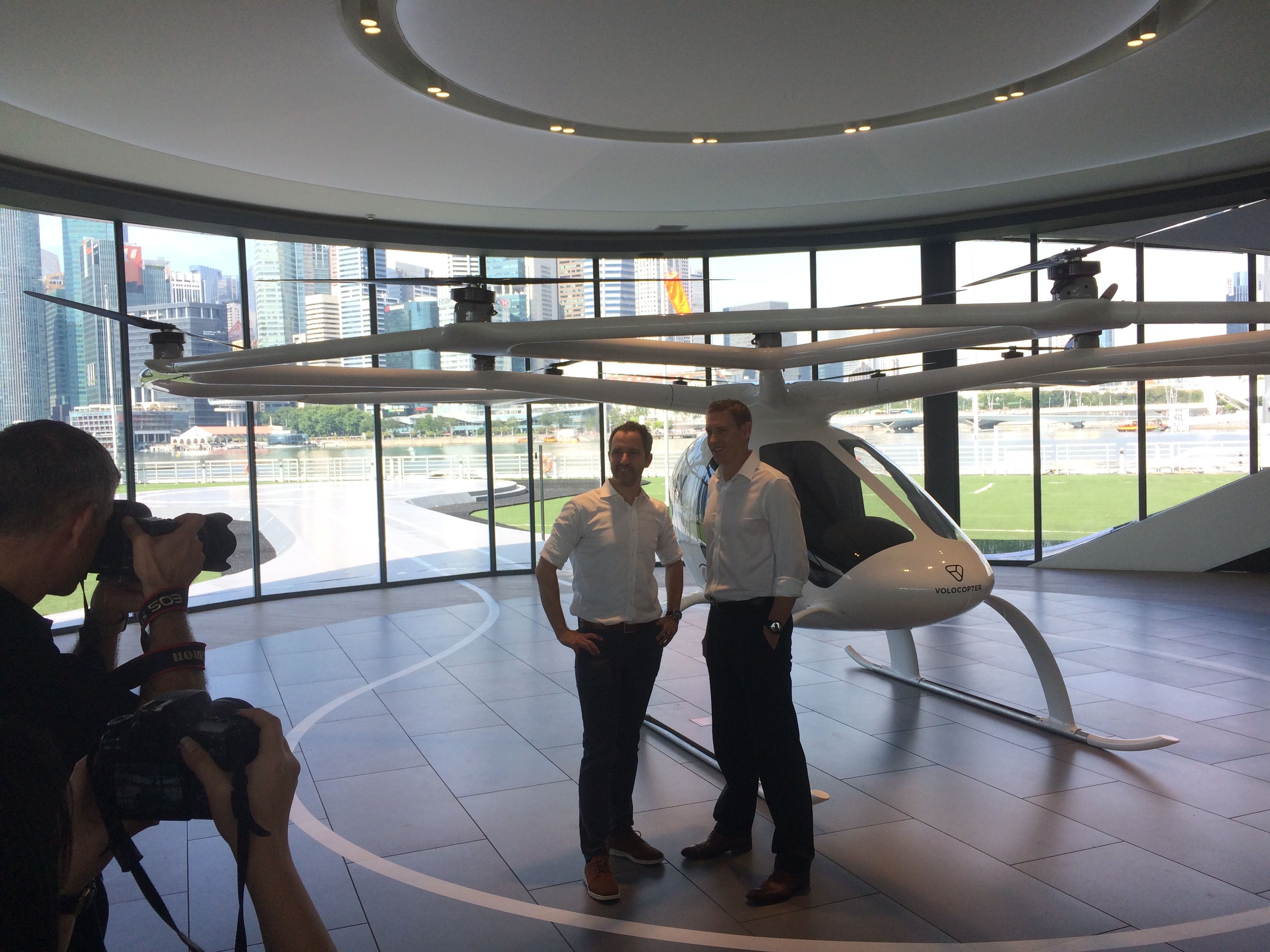
Duncan Walker (above right), managing director of Skyports, the company Volocopter has partnered with to promote and build its VoloPorts, and Florian Reuter, CEO of Volcopter, faced the world’s press in the mock-up VoloPort building, complete with Volocopter vehicle, on the The Float at Marina Bay, with the backdrop of Singapore’s iconic skyline.
While some excitement surrounded the vehicle itself and the potential for its autonomous operation and even the possibility of one day relieving ground-level congestion, Walker told Traffic Technology Today that the main reason for their presence at the ITSWC 2019 was to build bridges with transportation chiefs from around the world.
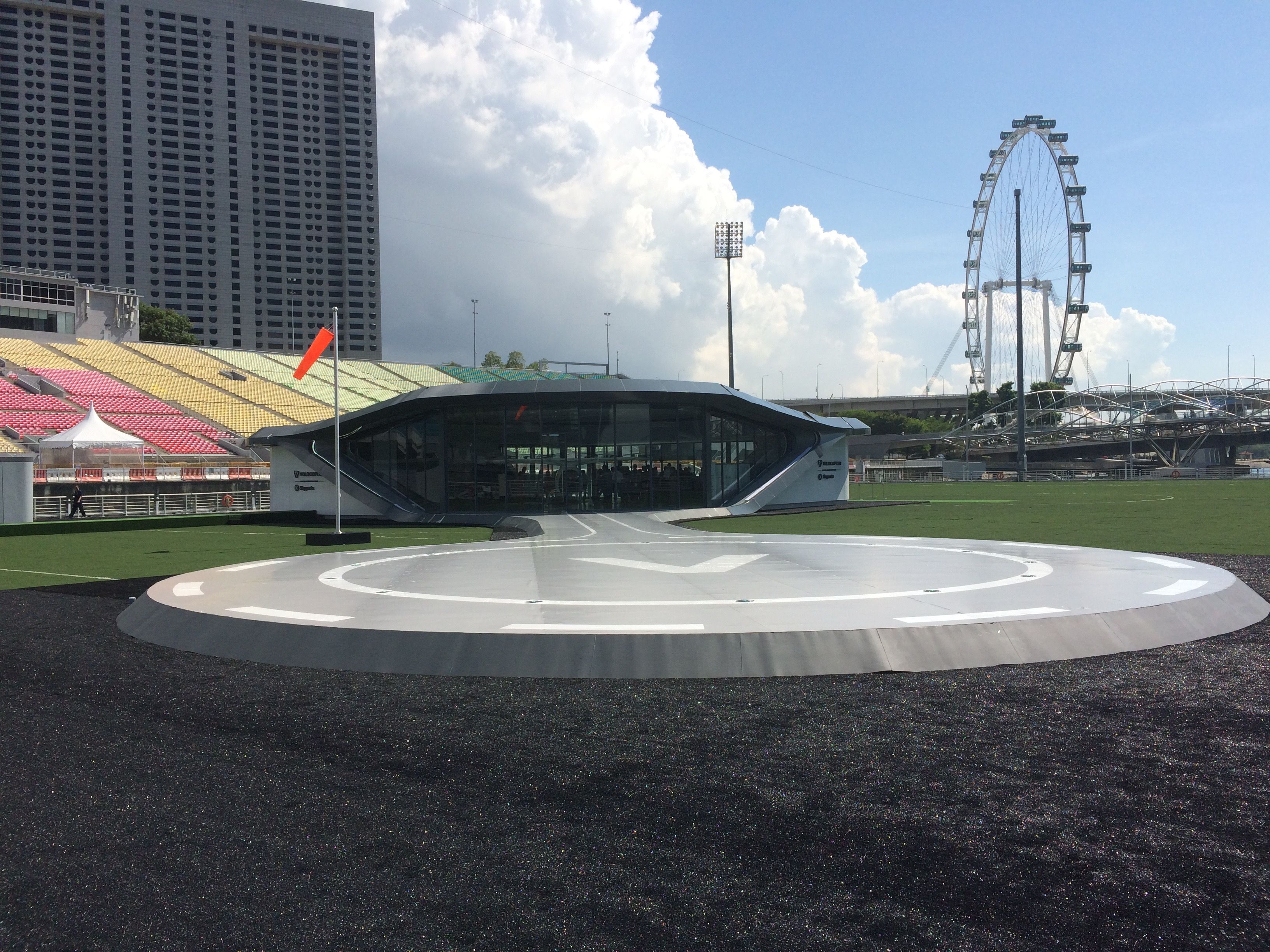
“We’re really excited to be here in Singapore launching the world’s first VoloPort, a partnership between Skyports and Volocopter,” said Walker. “But why are we here? It really boils down to a simple thing: political engagement.
“We need buy-in from the top level. And we really encourage that because it allows cities to dictate how they want it to happen. These are their cities. We are bringing in something that we feel will be really exciting and useful to the population. But every city is different.
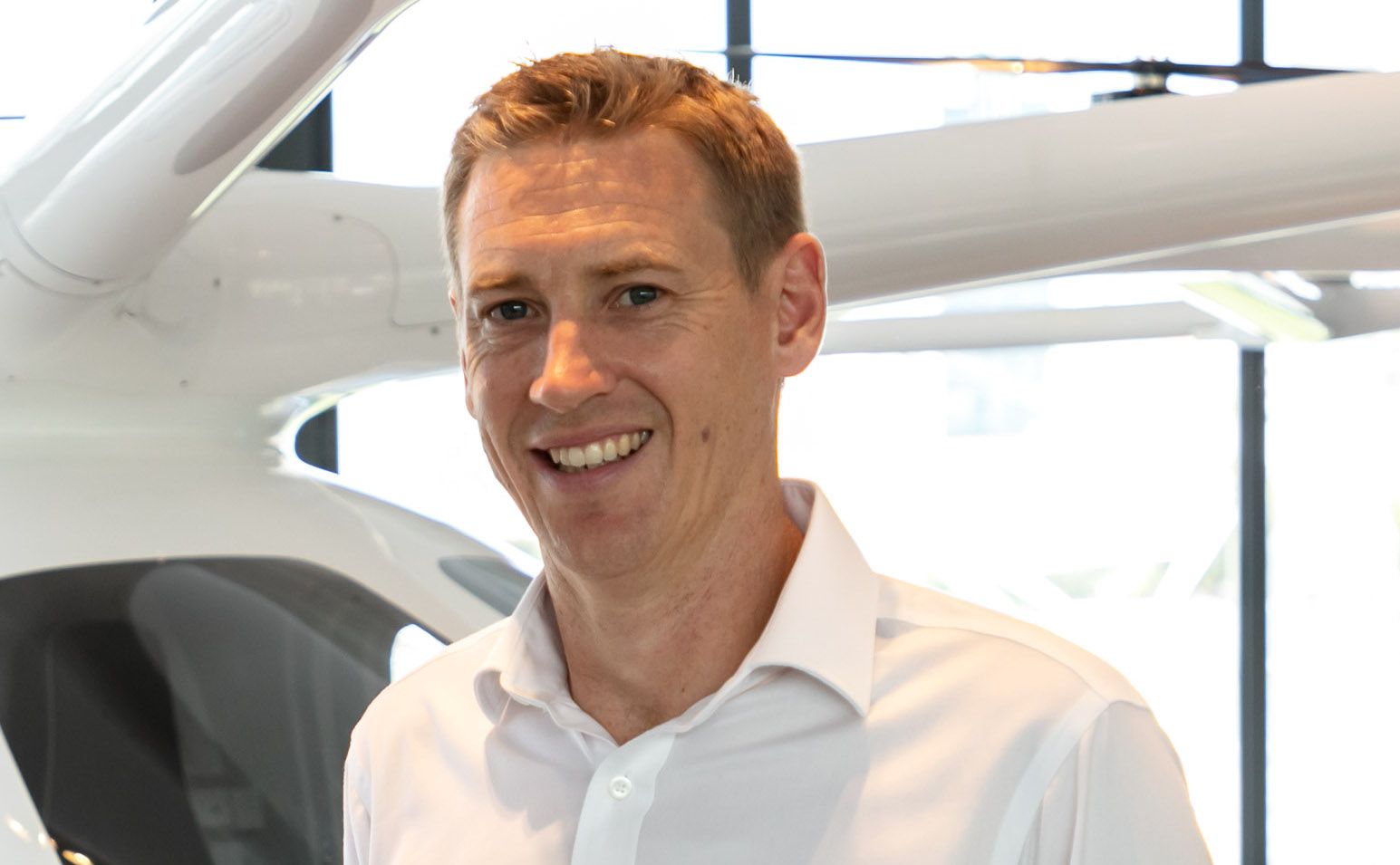
“If we can get the engagement that we’ve had at a brilliant level in Singapore from all sorts of departments, transportation departments, land authorities, aviation departments, then it’s super joined-up. It’s integrated. And that’s a really great base from which to launch into this exciting world.
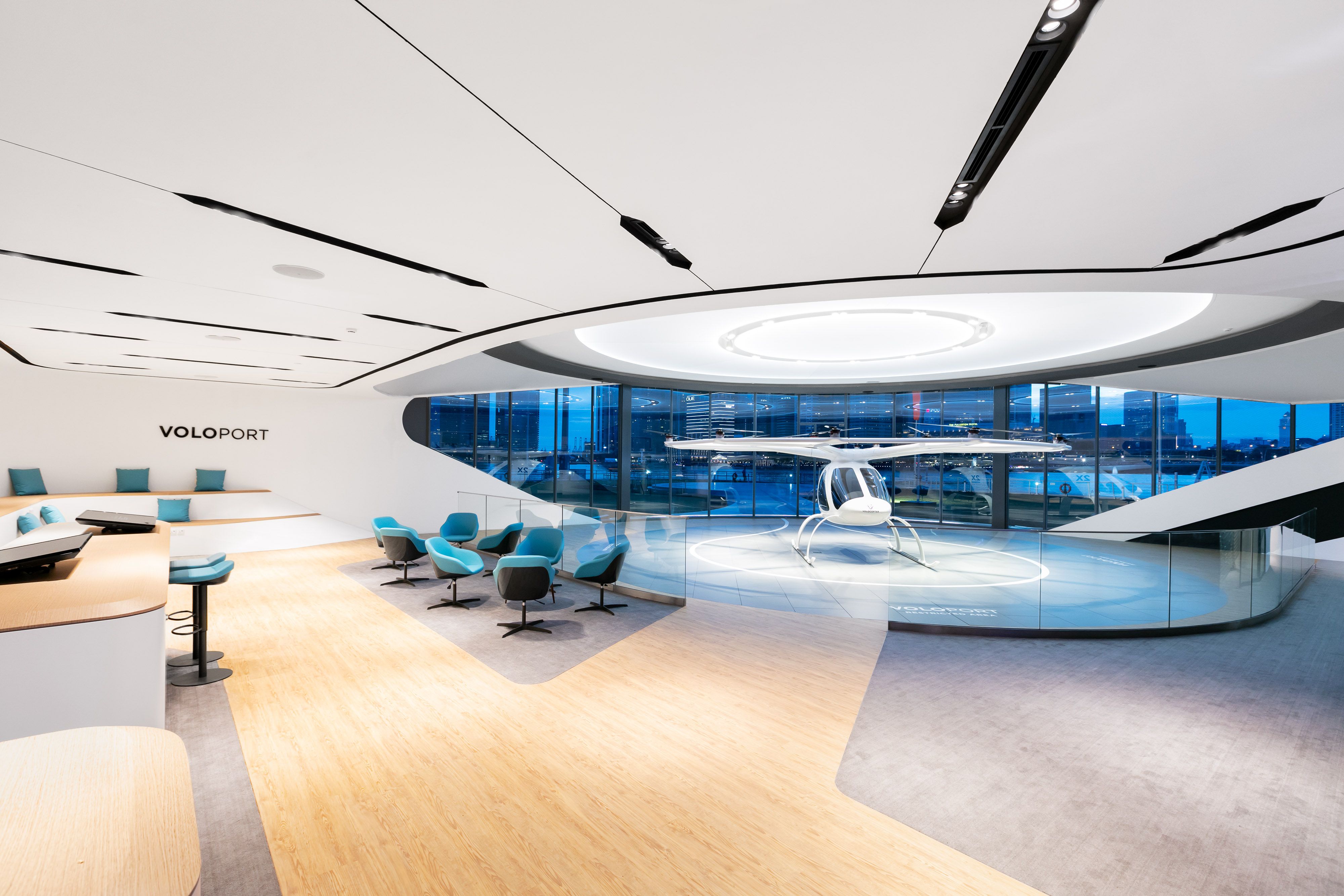
“Ultimately, we want to get it to a stage where people don’t think about the technology – when you jump in a taxi today you don’t really think about the underlying technology it takes to move it around. It’s just part of everyday life. If we get to that stage, we’ve done it.”
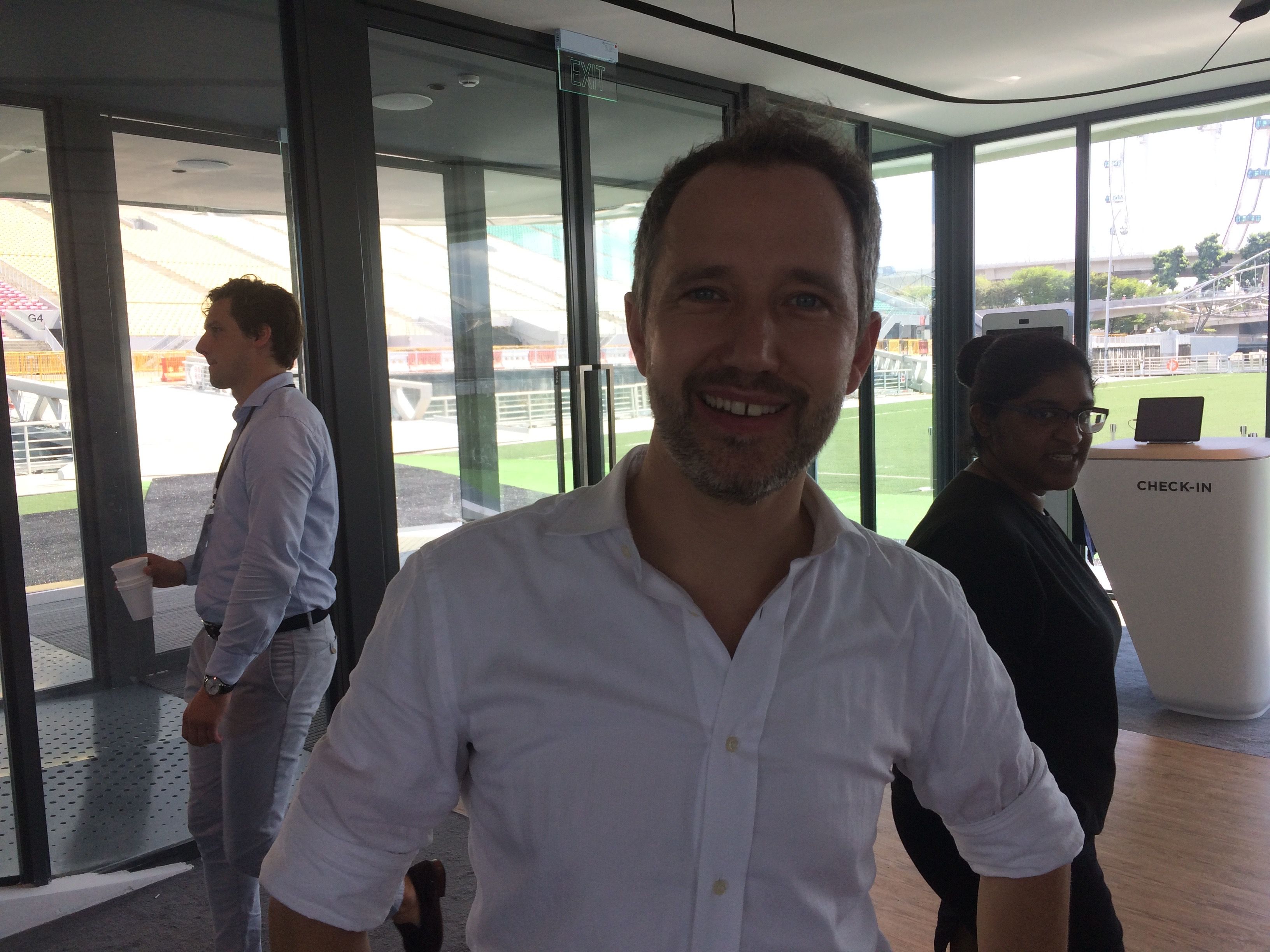
Reuter, Volocopter’s CEO (above), added, “Testing is very exciting. But we need all elements of the ecosystem to come together. We can’t do it all on our own. One of the most important parts is the infrastructure. The VoloPort enables the turnaround of the vehicle and the passenger. We also need to make sure the vehicle is actively integrated with the traffic management system and we are working with partners to achieve that. One day we think there will be small unmanned eVTOLs (electric vertical take-off and landing vehicles), large unmanned vehicles and air taxis. They all have to coexist, which is why we are working to develop the traffic management system.”
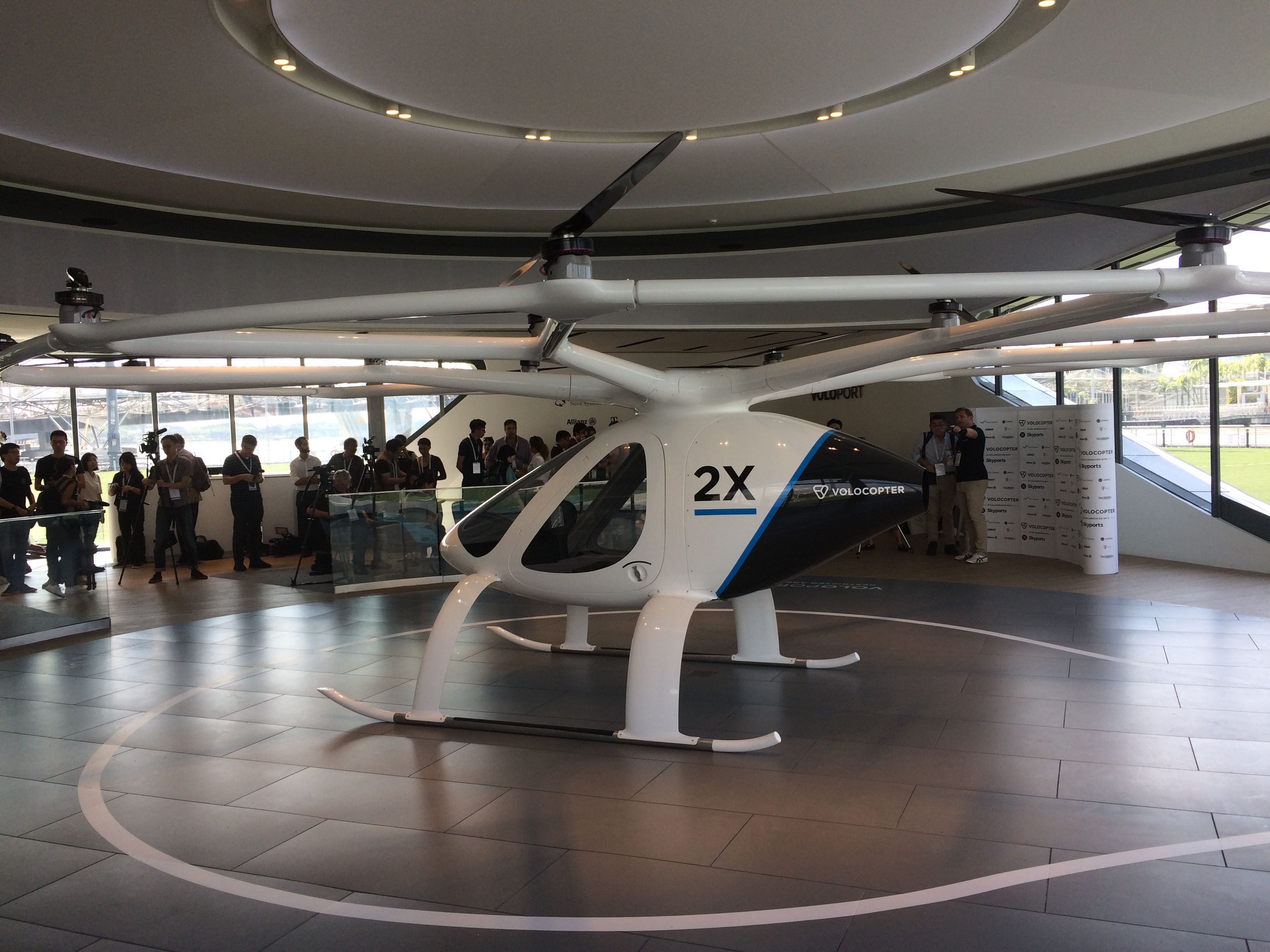
Walker suggested that Singapore may be the first city in the world that will see a commercial Volocopter service. “The VoloPort is an important step towards establishing an entire air taxi solution in Singapore,” he said. “Skyports has identified a number of potential VoloPort locations and air taxi routes across the city state.”
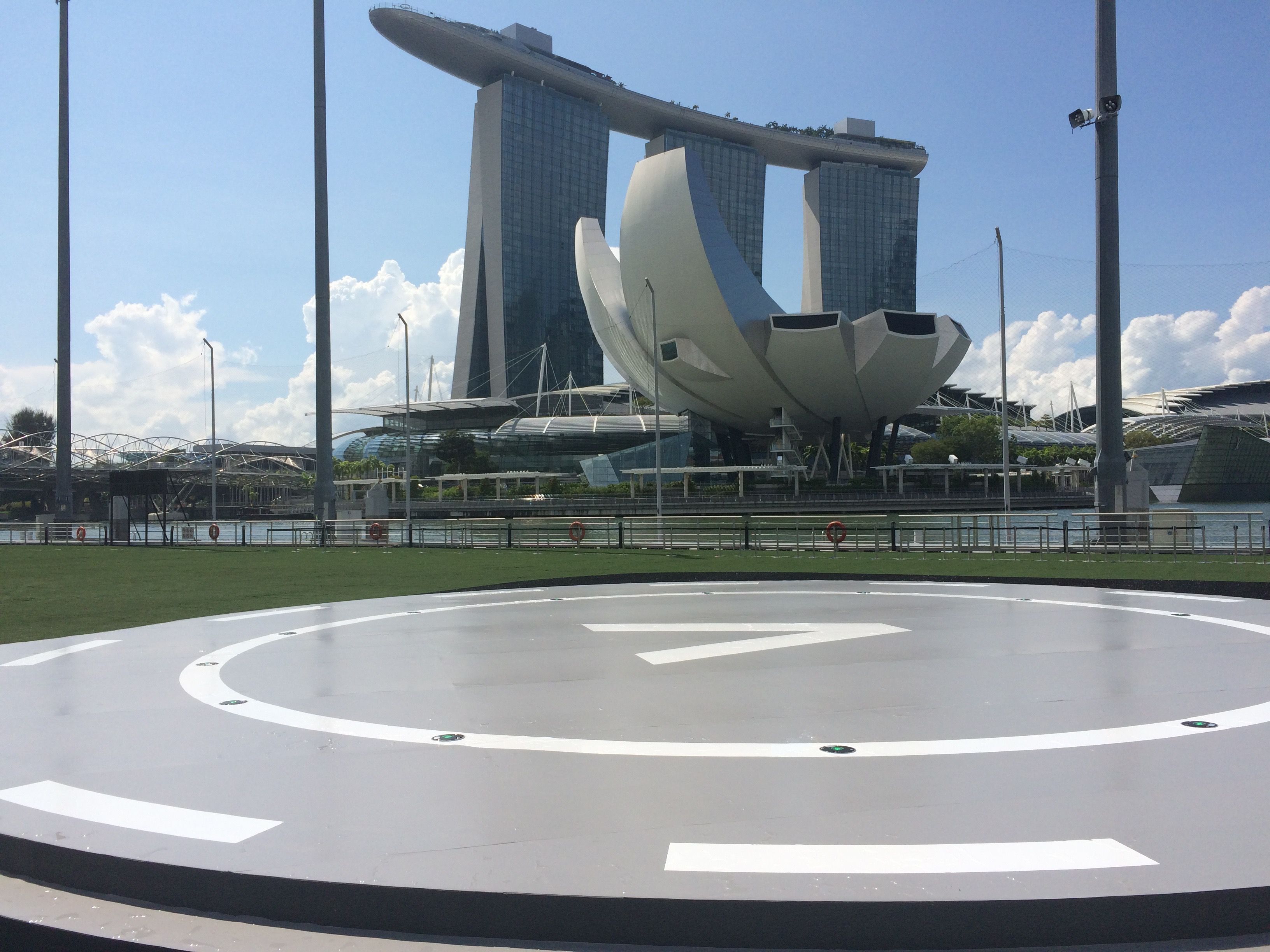
All eyes will be on Singapore’s Marina Bay once again tomorrow (October 22) as Volocopter plans to make its first ever urban test flight, with ITS World Congress attendees watching. It promises to be an exciting moment in transportation history… weather permitting.


